
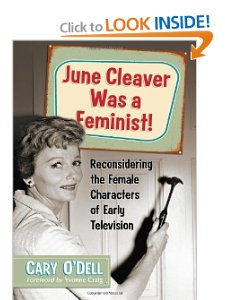
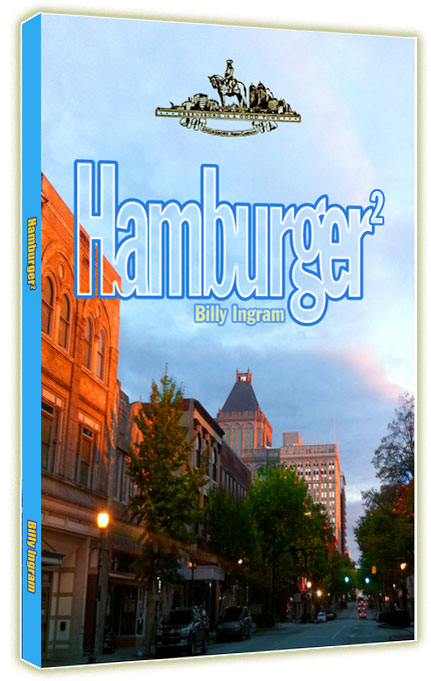
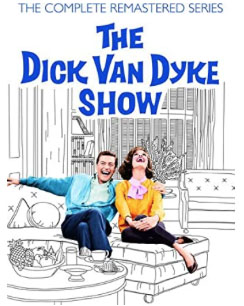

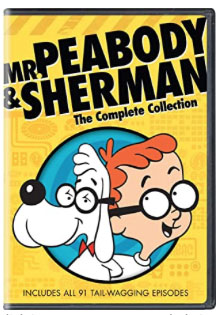
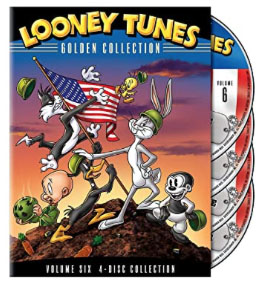
 |
 |
 |
 |
 |
 |
 |
|
| |
|||||||
|
PART
TWO / PART
ONE HERE LWH: How did you decide to do this? Williams: As a teenager, I was fortunate enough to meet this guy who was making a feature film. He was dating my sister. He's older than me. But he was writing and directing and starring in, doing the whole feature film. I got to work on it in various capacities. I did the sound. The main thing, I saw how a film was totally shot out of sequence. It was something that was created and never really existed. Little pieces of film shot at different times and put together in a way that made it seem like something that was really happening. That got me really excited. I started making my own little comedy short films with Super 8. And they went over real well. Even my first one I made, I had a little screening and everybody really laughed. Actually, they probably laughed at it more when I was rewinding the film and everything was going backwards. I continued making films, and very seriously so, even as a late teenager and early 20s. I didn't really have a real aptitude for anything else. I went to school. My uncle told me be an engineer. But this filmmaking thing, I got very excited about it. To this day that's all I've done. LWH: Lots of teenagers made 8mm and Super 8 movies back then, but not many actually did much with it. Williams: I was serious about it. As I say, I got a really good reaction right from the start. People laughed. I was very energetic and ambitious. I know there's a process on "Saturday Night Live" where the writers have to make the case for their sketches. LWH: Was that the case with Mr. Bill? Williams: No. Lorne just said, "Look, I don't know how you do it. Just go do it. If it works, you'll be a hero and I'll be a hero. If it doesn't work, I won't put it on." So he just let me go off and do them. Then he would see them at dress rehearsal. He had a chance if he didn't want to put them on. He put every one on, though. There are 27, I think. Actually, to this day, Mr. Bill is still the most frequently used character on the show, even more than the cheerleaders [portrayed by Will Ferrell and Cheri Oteri]. It's hard to believe. LWH: So it never got bumped for time? Williams: Well, it would get bumped for time sometimes, but it would then run [on a later show]. But all the ones I made were shown. The films went first because of the sets; you had a guest host and sets were built, so that was an important thing. But if there was a timing thing, the films were a good insurance to throw in. That would be easier to cut and put on the next week rather than strike a set and so forth. LWH: You weren't the only one making films for Saturday Night Live. Albert Brooks was as well. Williams: Yeah. He only worked on the first season also. Then Gary Weis and then Tom Schiller, who's one of my favorite people, and me. I guess we were pretty much the only filmmakers. LWH: Was there a rivalry between the filmmakers? Williams: I don't know. The first three seasons I was basically submitting them. Maybe there was, but I didn't even know. I was just lucky they got on. I would tell people I think it might be on, but it wouldn't be. By the time I was there, the fourth and fifth seasons, it was just me and Schiller and we were really kind of best friends. I don't think it was either-or. There were kind of two separate types of things. There was definitely a lot of rivalry about getting skits on, though. By the time I got there, everyone was kind of settled in with the formula and various partnerships. That was a little more difficult. LWH: Do you have a favorite skit that you wrote? Williams: I really liked the Elvis Presley's coat. It was a film. I used a lot of my relatives in it. It was done like a Beatlemania-type commercial. That was fun. My Uncle Walt and different people were in it. They were the people interviewed outside, the testimonials. I did a lot of Weekend Update jokes. LWH: Anything come to mind? Williams: There's so many. It probably wouldn't make any sense out of context. They're all so topical. I was actually an extra in several skits. I was in the Three Mile Island skit. I was a pirate on the Raging Queen. I would pop up. My biggest moment was the very last show of the last season [I was on], when Lorne decided that was enough. That was a pretty smart move of his, really. We all left, but it was the last show and he came up with the idea that we were being replaced. NBC let us go and they were going to staff it with a whole new crack group of the finest young comedians. So I was supposed to be one of the new cast members. I had a tuxedo T-shirt on. I had a few lines. It was pretty funny. LWH: You left in 1980? Williams: Yeah. That's when everyone left. It was kind of fortunate because Mr. Bill was at its peak in the fifth season. He probably was the hottest thing on the show because a lot of the people had left. Danny and Belushi had left. So Lorne decided that was it. So everybody left. The whole staff, writers, actors, we all left. It was nice leaving there at that peak because a lot of things get to that point and they just burn out and become like everything else and everyone gets tired of it. If anything, people said, "Well, where is he?" Which I think is good. Rather than , "Oh, yeah, I had enough of that." LWH: Yours and Mr. Bill's appearances correspond with the first five seasons. Williams: And a couple after that. There was one show where I wrote the cold opening for the show, Dick Ebersol's first show. Chevy Chase was poking around his old dressing room, which is now a storeroom. He picks up the Bee's costume and Mr. Bill's buried under a pile of beer cans. He's been stuck there since the wrap party. LWH: Is it a coincidence that you were there when the show was supposedly at its funniest? Williams: I guess it was a coincidence. LWH: Do you take any credit for that? Williams: Mr. Bill certainly was, I think, a big contribution to the show. I'm not saying it was the most popular, but there are some people who thought it was their favorite part. The ratings in the fourth and fifth seasons were the highest ever, probably triple what they are now. That's when everyone stayed home. They didn't go to parties and the nightclub business died. It was a 50, 60, 70 share, crazy numbers. Those were the years actually when Mr. Bill was on a peak. The fourth and fifth, I did 10 each year. LWH: How long would it take you to write one Mr. Bill? Oh, it varied. A couple of weeks. Trying to write them and assemble the props. Filming it. I filmed it myself. And editing it. It's a film. It looks simplistic but it's still pretty much a pain in the ass like making any movie. There's a lot of tedious work. Writing the script is really in some ways the hardest part, coming up with the jokes and then somehow preserving it to the end even when it seems like it's not funny anymore because it's an old idea but that's the trick. If it seemed funny in the beginning, if you can somehow keep it and get it onto film and preserve it, the audience, hopefully, will get the same spontaneous feeling you got originally about it. LWH: Did you ever hear any jealousies or any bitterness from the cast that Mr. Bill was getting this airtime? Williams: A little bit. A little bit. I'm not going to name any names. But there was some. LWH: Did that bother you at all? Williams: Nope. It's totally out of my control. LWH: Mr. Bill's been around a long time now. Williams: Almost 30 years. LWH: Do you ever get tired of him? Williams: No. I don't really have to do much with it, really. Occasionally I do things. If someone can track me down and has an idea and I can think about whether I want to do it or not, but I don't pursue it. I don't really think about it. People don't recognize me, so they don't know to ask me. I go to a party. I never bring it up. I like the anonymity. I never went into this for the recognition. In fact, I like not being recognized. I really like the process. And it was great. Especially at Saturday Night Live when they'd show the movie. I was there in the studio once I got on staff. I got to listen to a live audience reaction to the film, which is amazing, and it would give me a lot to go on. Like if something didn't quite go over, I could analyze it, if the shot wasn't right or something; the next week I could try to perfect that. But just getting it done was really the satisfaction. All the other stuff pretty much was gravy. |
L. Wayne Hicks is a Denver-based writer and student of popular culture. He is completing his first book, the story of the TV show Romper Room.
Please consider a donation
so we can continue this work!
Amazon Prime - unlimited streaming PR4 & PR5 Pages for Advertising
Visit mrbill.com for fab Mr. Bill merchandise!
|

|
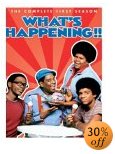
|
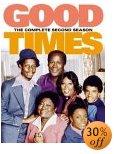
|

|
 |
 |
 |
 |